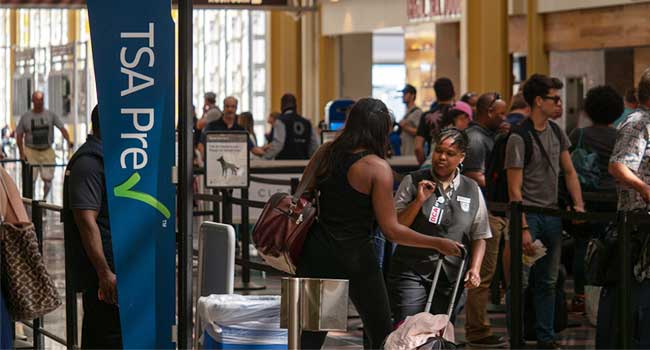
Government Shut Down Impacts Airport Security as TSA Call Outs Continue
The government shut down is forcing some TSA agents to call in sick as they continue to go unpaid for the work they do.
- By Sydny Shepard
- Jan 08, 2019
The government shut down is entering its 18th day, the longest government shut down in history. While most are able to move on with their daily lives, unaffected, there are others who are working without pay for the foreseeable future, including TSA agents.
A CNN report brought light to a larger than normal amount of call outs at John F. Kennedy Airport. Over 170 TSA agents called in sick to work, some not being able to afford the commute, others not understanding why they have to continue to work without pay.
"They can't continue," Sen. Chuck Schumer said on Sunday. "They can't get to work and they're not getting paid. That means longer lines at the airport, that means delayed flights at the airports and that puts a crimp on our New York Economy, which depends on people flying in and out."
As a result of the report indicating mass amounts of TSA agents are calling in sick, more and more travelers are flocking to the airports early to get through security, resulting in even more traffic at the checkpoints.
A statement published on TSA's official Twitter account on Sunday stated that despite the 170 and counting agents calling in sick, efforts to secure the airport had not been compromised.
"Calls out began over the Holiday period and have increased, but are causing minimal impact given there are 51,739 employees supporting the screening process," the statement read. "Security effectiveness will not be compromised and performance standards will not change. Wait times may be affected department on the number of call outs. To date, however, screening wait times remain well within TSA standards."
TSA confirmed that in the midst of the call outs on Sunday, over 2.2 million passengers were screened nationally and 99.8 percent of those passengers waited less than 30 minutes to get through security. Ninty percent of the passengers made it through security in less than 15 minutes.
"TSA is grateful to the agents who show up to work, remain focused on the mission and respectful to the traveling public as they continue the important work necessary to secure the nation's transportation systems," the statement said.
About the Author
Sydny Shepard is the Executive Editor of Campus Security & Life Safety.